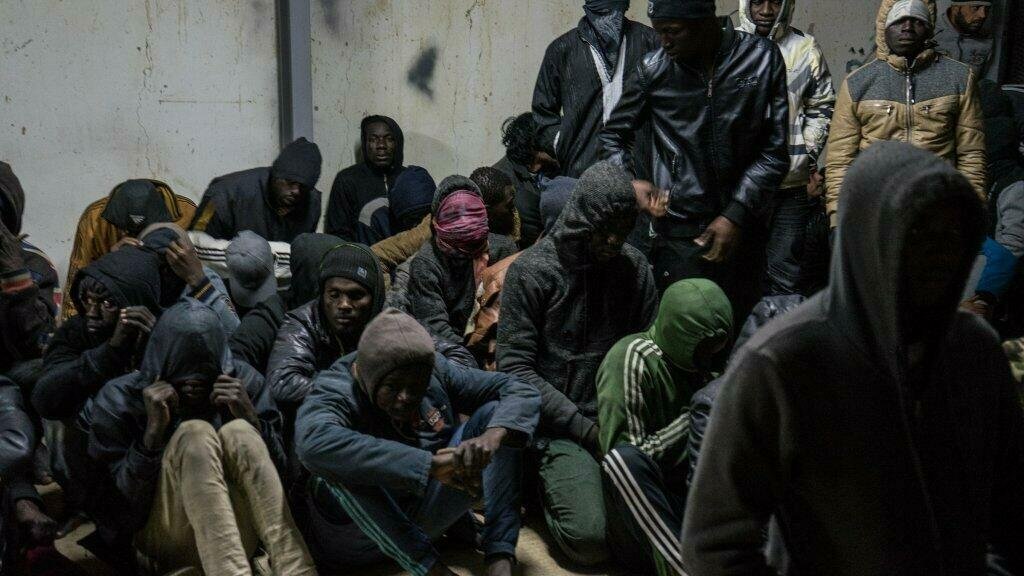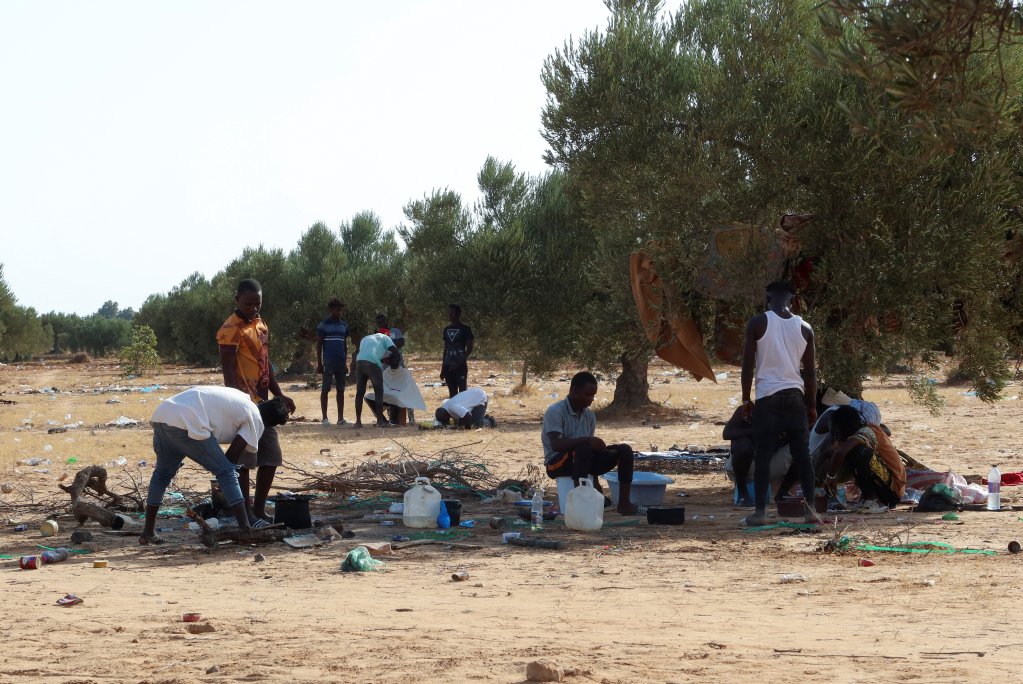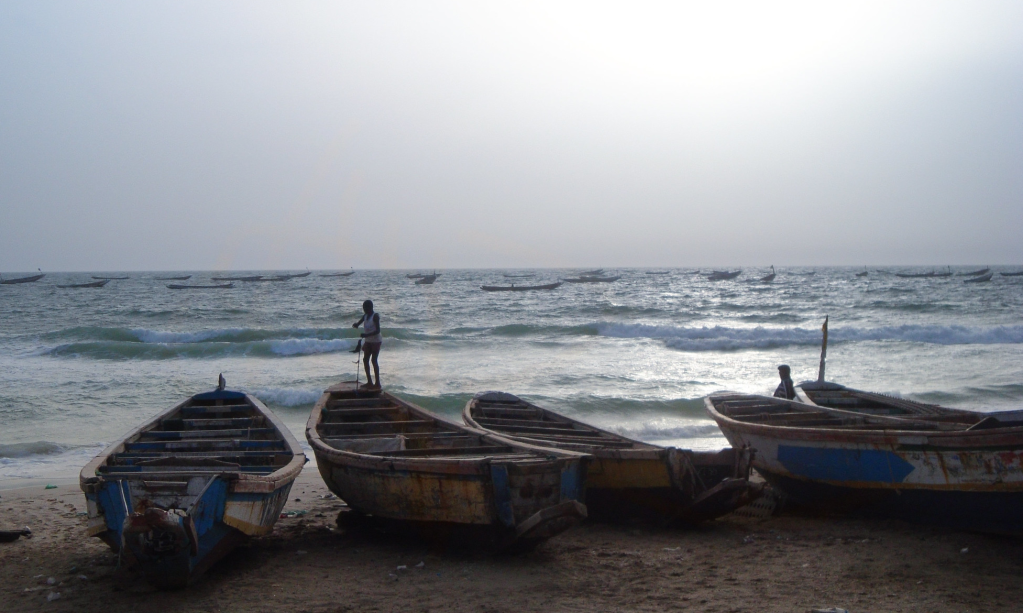To curb irregular immigration, the EU aims to stop migrants from reaching its borders by signing deals with several African countries.
The president of the European Commission, Ursula von der Leyen, recently confirmed Europe's determination to "address the root cause of illegal immigration and work with partner countries" from which migrants leave, or transit through, before reaching the European Union.
Since 2015, when migration to Europe increased dramatically due to the war in Syria and other factors, the EU has been signing accords with other countries, especially African states, to block the arrival of migrants before they even reach the borders of the EU and facilitate the deportation from Europe of people without papers.
The EU notably used this strategy in 2016 with Turkey, when it paid Ankara a large sum of money in exchange for curbing migration towards Europe.
In the lead-up to the European Parliament elections, InfoMigrants examined the agreements and some of the reasons they have been criticized.
Libya
Brussels has provided logistical and financial support to Libya since the signing of the Malta declaration in February 2017, a plan that focused on stemming the flow of immigration from Libya to Italy and the EU by providing training and support to the Libyan coast guard, as well as ships to the Libyan authorities. The agreement also aimed at intensifying the fight against smuggling networks and setting up reception structures for migrants in Libya.
Whether or not the agreement had the desired effect of reducing the number of departures from the Libyan coasts, it was certainly followed by more difficult conditions for migrants passing through Libya. According to numerous accounts collected by InfoMigrants as well as other media organizations and NGOs, migrants in Libya are subject to physical and sexual violence, forced labor, exploitation, arbitrary detention and even extortion on a daily basis.
Also read: Videos of migrants being tortured in Libya published on social media
"Every day, they torture you by hitting you with pipes or giving you electric shocks. Several people were beaten to death before my eyes," said Ibrahim, a Senegalese migrant in Libya, in 2020.
"At night, men come to pick up women and force them to follow them by pointing a gun in their faces. They then rape the women nearby. Every woman who has traveled through Libya has been raped at least once," said Christian, a 37-year-old Cameroonian who had traveled through Libya.

The EU allocated more than 700 million euros to Libya between 2014 and 2020. The funds were used for "the needs of people in Libya, both the migrants and the host communities who are affected by the situation," said Peter Stano, spokesperson for the European Commission. "I do not agree with the assertions that our money is used to finance the business model of smugglers, or those who abuse and mistreat people in Libya," he said the day after the United Nations published a report implicating the EU in human rights violations in Libya.
Tunisia
Many migrants have chosen Tunisia as a point of departure for Europe to avoid the violence they face in Libya. The North African country, led by Kaïs Saïed, received a visit from a European delegation in July 2023, which ended with both sides signing an agreement to fight against irregular immigration.
Also read: EU-Tunisia migration deal under scrutiny
Worth over 100 million euros, the partnership allocates European funds for schools, the revival of the Tunisian economy in difficulty and the development of renewable energies. All in exchange for more controls in the domain of immigration and the facilitation of voluntary returns. The EU also promised the Tunisian authorities eight boats, as well as drones.
EU and Tunisian authorities signed the agreement at a time when Tunisia was experiencing a wave of xenophobia against the sub-Saharan African community. "In the short-term, developing border controls and support for the Tunisian coast guard should make it possible to limit arrivals. Yet this is also strengthening Tunisian authoritarian power which does not contribute to the development and stability of the country," said Camille le Coz, a specialist on migration policies, the day after the deal was signed.
Since then, the anti-migrant sentiment has only increased in Tunisia. Exiles are arrested and "deported to the Algerian or Libyan border," according to the Tunisian Forum for Economic and Social Rights (FTDES).

Read more: Ousman: 'What they are doing to us is inhuman'
In response to the criticism, European Commissioner Oliver Varhelyi defended the migration partnership with Tunisia: "In 2022, 32,459 lives were saved by the Tunisian border guards and coast guards. This year [2023], we are already close to 50,000 lives saved thanks to this cooperation."
"Migration management must be done with respect for fundamental rights and international obligations. These principles are the basis of our global partnership with Tunisia," said Stano in an interview with InfoMigrants.
Egypt
Showing its desire to increase "strategic partnerships" with African countries, the European Union signed a new agreement with Egypt last March. Out of a total of 7.4-billion-euro funding package, 200 million euros was intended for managing migration. The deal also provided for the delivery of at least three search and rescue vessels to the Egyptian coast guard, along with thermal cameras.
The objective was to stem immigration from Egypt, which represented 20 percent of migrants arriving in Italy in 2022. As the war in Sudan rages and the conflict between Israel and Hamas continues in the Gaza Strip, the European Union fears the arrival on its territory of a large influx of migrants fleeing diverse wars.
Read more: Poverty, restrictions, censorship: What's driving Egyptians to head for Europe
The European Commission said that, "full respect for human rights will be an essential and integrated element of [this agreement due to] rigorous and regular monitoring of the use of equipment." Despite this, the EU-Egypt partnership worries rights defenders who denounce the policies of President Abdel Fattah al-Sissi and failures to protect human rights in Egypt.
Mauritania
The EU member states are closely monitoring another point of entry into Europe: the Canary Islands. Last year, 40,000 people reached this Spanish territory from the African coast. It was an unprecedented figure, not even witnessed during the "cayucos" crisis in 2006, when migrants used wooden canoes known as cayucos to cross the Atlantic. The figures this year have only continued to rise: nearly 16,000 migrants have arrived in the archipelago since January, an increase of almost 370 percent compared with the same period in 2023.
In response, Brussels announced a package of 200 million euros for Mauritania, the country from which the majority of boats leave for the Spanish islands. For more than 20 years, Nouakchott has received substantial sums from Spain and the European Union for migration management. For the period 2022-2027, the EU allocation amounted to 12.5 million euros. Yet the recent massive arrivals have pushed the EU to increase funding. In exchange, Nouakchott agreed to take in migrants headed for the Canaries and block departures of the boats.

Towards other partnerships?
Although NGOs regularly criticize these agreements, the European Commission appears satisfied with their effectiveness. It plans to continue these diplomatic measures in Africa and conclude new agreements. Countries such as Senegal, from which many boats also leave for the Canaries, or even Morocco, have been mentioned by European authorities.
Yet European authorities are not unanimous in their approval of these agreements. "I am quite reluctant about these agreements which have yet to prove their effectiveness. We are currently spending huge sums of money, giving it to different regimes or governments, such as the Tunisian government. We know that the Tunisian authorities treat refugees very badly," Nicolas Schmit, current European Commissioner in charge of Employment and Social Rights, told Euronews on May 7.
"We still have the problem in Libya, where there (are) two governments. We have the question in Egypt. So I'm quite reluctant with this kind of deals," he said. "I think we have to revise them and see what can be done, how can we do it differently, because we do not know exactly how the money is used."
